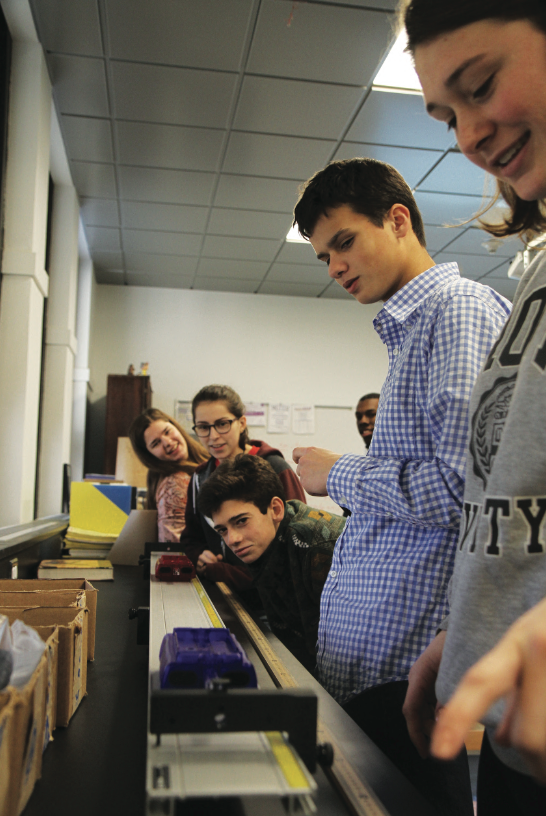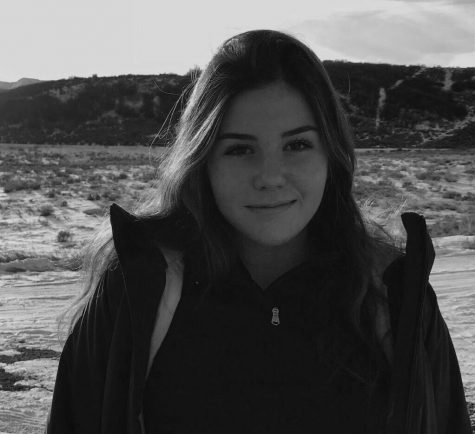Upcoming AP Forum gives all students a chance to succeed in AP
December 16, 2016
To ensure that every student feels prepared for advanced courses, the annual Pathways to AP Forum will take place Jan. 10 in the auditorium at 6 p.m.
“The goal is to make sure that all students feel prepared for advanced courses and the pathways they should take to get there,” Math Dept. Chair Dale Leibforth explained.
Since 2011, Pathways to AP has been helping students and parents understand what it takes to enroll in an advanced class. There will be multiple presentations from experts such as Leibforth, College and Career Coordinator Beth Arey, and College Expert Anne Kremer.
In addition, there will be a panel of students with a variation of AP background. Each student will speak about their own experience, the struggles and challenges they have faced, and what they have done to overcome them. There will also be time for parents and students to ask questions.
“We want to make sure that every student knows they have a place in AP,” Leibforth explained.
During the forum, people attending can travel through the cafeterias and meet teachers who can provide more information specific classes. For students who are unable to attend the forum, AP Fair gives them a second chance to meet with teachers and learn about the courses on Jan. 12 during lunch periods in H-Hall.
For college admissions, advanced classes are helpful because they show that students have experienced rigorous coursework and challenged themselves. Some colleges expect that students take AP classes if the school offers them.
“I believe that all our college bound students should take at least one AP,” Arey said. “It is beneficial regardless of what college you want to go to.”
College research shows that an AP exam score of two correlates with a higher four year graduation rate and better college performance than students who don’t take an advanced placement course. AP students also tend to have higher GPAs.
Arey also explained that in most cases, the expectations for classes and coursework a student enrolls in depends on the college they apply to or the field of study they are interested in.
“The number of AP courses a student has to take really depends on the college,” Arey said. “That is why early awareness is so important.”
According to The Princeton Review, taking AP classes in high school makes the transition to college much easier. They also show admissions officers that the student has taken challenging classes in high school and is ready for college-level courses.
“It can never hurt to get ahead,” senior Abby Gilliland said. “I like the challenge and it helps for college applications.”
Some students feel that advanced courses are too hard or are unaware of all the options of classes they can take. There is still a major demographic gap for enrollment. In recent achievement reports, data has shown that more white students tend to take AP classes than black or Hispanic/Latino students.
“I feel like ETHS can do more to help students who weren’t as prepared as others during middle school,” sophomore Mark Sanders said.
Fortunately, the school has many outlets where students can get support. Open to all students, Team ASAP meets once a month. It helps with preparation, tools needed to succeed and gives the opportunity to speak with AP students. Wildkit Academy, AM Support and study centers in the Hub are also useful tools for students who need extra help.
“I was able to get into rhythm with my AP classes after the first few weeks,” junior Ayanna Michel explained. “The teachers are all helpful and I can go in for AM Support if I ever need to.”
During freshman year, the majority of students all take the same earned honors courses, which helps them prepare for advanced placement classes. On top of that, there are gateway AP classes such as Psychology or American Government.
“Every student has the ability to challenge themselves,” Leibforth said. “Our jobs as teachers are to make sure they feel prepared and in some cases, the first step is honors.”
ETHS offers a total of 34 advanced placement classes in career and technical education, computer science, English, history and social science, math, science, and world languages. Students are ensured to find a class that appeals to their interests and passions.









